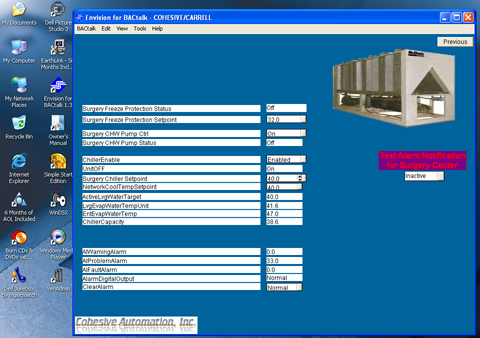Original URL: https://www.theregister.com/2009/07/01/hospital_hacker_arrested/
Feds: Hospital hacker's 'massive' DDoS averted
Arrest foils 'Devil's Day' scheme
Posted in Security, 1st July 2009 21:32 GMT
The leader of a malicious hacker collective who used his job as a security guard to breach sensitive Texas hospital computers has been arrested just days before his group planned a "massive DDoS" attack for the July 4 Independence Day holiday.
Jesse William McGraw, 25, of Arlington, Texas, was taken into custody late Friday evening after posting screenshots showing he had complete control of computers that administered air-conditioning systems at The Carrell Clinic in Dallas, federal prosecutors said. McGraw also brazenly posted videos showing him installing malware on hospital computers that made them part of a botnet he operated, said a network security expert, whose sleuthing uncovered the breach.
As a contract security guard at the hospital, McGraw had no authorized access to any of its computers. But that didn't stop the miscreant, who went by the handle GhostExodus, from taping himself as he walked down the halls of the hospital with a blue security guard uniform poking out through a gray hoody, as he bragged about gaining control over sensitive computers.
"It's a unique mindset among these hackers," said Wesley McGrew, a 29-year-old network PhD network security researcher at Mississippi State University. "It's all about respect and fame and the respect of their equally weird peers."
According to McGrew and federal prosecutors in Dallas, McGraw was the leader of a hacker gang known as the Electronik Tribulation Army. He had recently posted videos admonishing fellow hackers to carry out a "massive DDoS," or distributed denial of service, attack on July 4, a date he called "Devil's Day". While the target and other details of the attack are unknown, the investigators are taking the threat seriously because McGraw, prior to his arrest, had tendered his resignation as a security guard job effective July 3.
According to court documents, hospital officials had experienced problems with their HVAC, or heating, ventilation and air-conditioning, units and were perplexed why none of the system alarms had gone off as programmed. Had they seen screenshots posted here by someone calling themselves GhostExodus, they would have known why. They images showed the HVAC control window for the hospital's surgery unit. A test alarm setting was turned to "inactive."
"You almost can't help it ya know," GhostExodus writes. "It must be done!"
GhostExodus outed
In some respects, McGraw's hacking regimen bordered on the paranoid. He kept a webcam over the outside door to his one-bedroom apartment so he'd know in advance when someone was calling on him. But otherwise, court documents portray someone who was sloppy in covering his tracks. The picture on a fake FBI credential he showed in one video matched the photo on his driver's license. Another video in which GhostExodus showed off Wireshark and other hacking tools revealed an IRC session that revealed an IP address issued by swbell.net.
His need for attention led him to volunteer a wealth of information about himself. A profile here made in March lists his age as 24 and shows the face of a white male that is identical to the one belonging to the individual McGrew says he observed in the hospital videos. (Those clips have since been taken down).
Combining the IP address with a Craigslist posting and GhostExodus's YouTube videos, McGrew soon deduced the miscreant probably was a night security guard at Carrell Clinic.
Besides breaching the security of the hospital, McGraw also posted evidence that he accessed a computer used by the aviation unit of the Dallas Police Department. Police officials confirmed that a machine assigned to that unit was known "to have been compromised by an unauthorized individual."
McGrew - who despite the name similarity has no relation to McGraw - first learned of the HVAC breach after someone from Electronik Tribulation Army sent him an unsolicited instant message on June 18 bragging of the exploit. The message pointed to screenshots that suggested it wasn't a hoax. With a specialty in SCADA, or supervisory control and data acquisition, McGrew quickly took notice. Three days later he tipped off the Texas Attorney General's office and the FBI.
"I can't just see that and let that go," he said. "I spent the entire weekend trying to find out as much about GhostExodus as possible."
Of particular concern was the sinking realization that someone had unauthorized access to the system that controls the air-conditioning systems that cool operating rooms and other critical areas of the Texas hospital, where temperatures regularly hit the triple digits.
"Elements of critical infrastructure, like HMIs for control systems in hospitals have such low security that even someone like this can get in," he said. "It really shows how dangerous even a low-skilled attacker can be." ®
